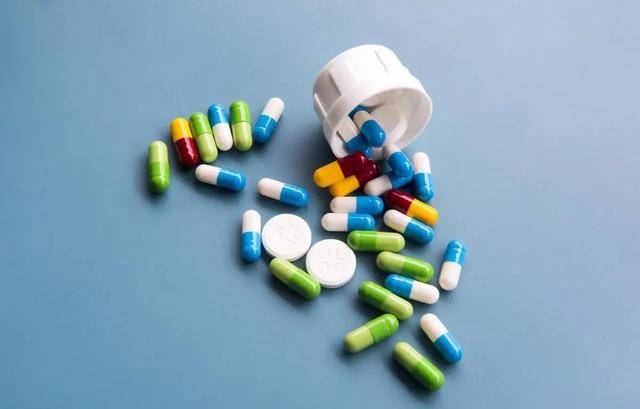Statins, like the guardians in the medical field, have shown irreplaceable bravery on the front lines of defending the balance of human blood lipids and preventing cardiovascular diseases.
They have become the most faithful companions for countless patients facing challenges of coronary heart disease, heart attacks, or strokes, staying by their side day and night.
Among the brilliant stars of statins, atorvastatin is undoubtedly the most dazzling one. As the leader of the third generation of statins, its emergence is like a brilliant sunrise in the medical field, enlightening the hearts of numerous patients.
Its long-lasting characteristics make it an indefatigable guardian in our bodies, safeguarding our cardiovascular health around the clock. No need to remember the intake time deliberately, it silently works in the body regardless of before or after meals, day or night.
Atorvastatin’s efficacy is admirable. On the battlefield of lipid-lowering, it demonstrates outstanding combat power. Compared with the older generation of statins, even at moderate doses, it can reduce low-density lipoprotein cholesterol by 30% to 50%, a remarkable achievement that makes it stand out among similar drugs.
Moreover, its high safety further assures patients, making them feel incredibly secure as if an experienced doctor is constantly guarding them.
However, despite atorvastatin’s excellence, many patients still know little about it. This is undoubtedly a regret in the dissemination of medical knowledge but also reminds us that for every drug that can improve patients’ lives, we should pay more attention and understanding.
01
Effects of Atorvastatin
The main effect of atorvastatin is its powerful lipid-regulating ability. In the body’s metabolism process, it functions like a professional cleaner, quietly clearing excess fat from the blood, reducing total cholesterol and low-density lipoprotein cholesterol levels, just like sweeping away dust and restoring the clarity of the blood.
However, the efficacy of atorvastatin goes beyond this. It can also stabilize atherosclerotic plaques, prevent their rupture, significantly reducing the risks of severe cardiovascular diseases like heart attacks and strokes. It is like building a strong defense line for the body, protecting the heart and brain.
Furthermore, atorvastatin also has anti-inflammatory effects, reducing inflammation reactions in the blood vessel walls and slowing down the progression of atherosclerosis. Like a caring doctor, it not only treats illnesses but also focuses on the overall health of patients.
Noteworthy is atorvastatin’s good tolerability and relatively minor side effects, making it the first-choice medication for patients with high blood lipids and cardiovascular diseases. This drug has earned the trust and praise of a wide range of patients and doctors due to its outstanding efficacy and safety.
02
What Changes Occur in the Body with Long-term Atorvastatin Use?
Over time, atorvastatin begins to exert its unique effects. It acts like a savvy craftsman, gradually clearing the “junk” in blood vessels—cholesterol and lipids deposited on the vessel walls. These “junks” are dissolved quietly, making the blood vessels more open, as if infused with new vitality.
At the same time, atorvastatin acts like a caring doctor, focusing on our cardiovascular health. Under its influence, the heart’s burden gradually decreases, beating more strongly, and blood flow becomes smoother. While these changes may not be easily noticeable, they bring real benefits to our bodies.
However, long-term use of atorvastatin is not without its costs. It may cause some mild discomfort, such as muscle pain or headaches. However, these are temporary, and as the body adapts, these discomforts will gradually disappear.
03
Taking Atorvastatin Daily, Remember “3 Dos and 2 Don’ts,” Neglect May Lead to Adverse Consequences
【3 Dos】
First, take it at scheduled times and doses. Just like the daily sunrise and sunset, the intake of atorvastatin also needs to follow specific times to ensure stable drug concentrations in the body, thus maximizing its therapeutic effects.
Second, follow the doctor’s instructions. Doctors are professional guides who tailor the most suitable medication plans based on each patient’s specific conditions. Therefore, we must strictly adhere to their instructions and avoid making dose adjustments on our own.
Lastly, monitor your body’s condition. During atorvastatin use, closely observe bodily reactions. If any discomfort arises, seek medical attention promptly.
【2 Don’ts】
Do not stop the medication without consulting. The efficacy of atorvastatin takes time to manifest and requires long-term accumulation. If you stop the medication prematurely due to feeling well, it could nullify previous efforts or even lead to disease recurrence.
Avoid ignoring medication side effects. All drugs have potential side effects, and atorvastatin is no exception. While its side effects are relatively minor, we should remain vigilant and seek medical attention promptly if any abnormalities are noticed.
04
How to Prevent Cardiovascular Diseases?
First and foremost, start with “diet” as the foundation. The diet should be balanced and nutritious, with a reduction in high-fat, high-sugar, and high-salt foods intake, increasing consumption of fresh fruits, whole grains, and foods rich in unsaturated fatty acids, such as deep-sea fish and nuts. This dietary pattern can lower cholesterol levels in the blood and reduce cardiovascular burdens.
Secondly, moderate exercise is also a key factor in preventing cardiovascular diseases. Exercise enhances cardiopulmonary function, promotes blood circulation, lowers blood pressure and heart rate, thus reducing the burden on the heart. It is recommended to engage in at least 150 minutes of moderate-intensity aerobic exercise per week, such as brisk walking, swimming, cycling, etc.
Additionally, quitting smoking and limiting alcohol consumption are equally important. Harmful substances in tobacco damage vascular endothelial cells and accelerate the development of atherosclerosis; excessive alcohol consumption can elevate blood pressure, increasing the heart’s workload. Thus, for cardiovascular health, stay away from tobacco and restrict alcohol intake.
Moreover, maintaining a positive attitude is also a significant factor in preventing cardiovascular diseases. Prolonged negative emotions like stress, anxiety, or depression can lead to hormonal imbalances, affecting cardiovascular function. Therefore, learning to adjust mentality and maintaining a positive and optimistic attitude toward life is essential.


